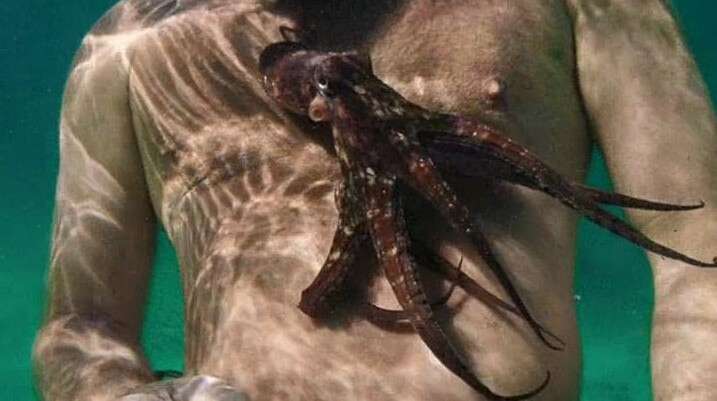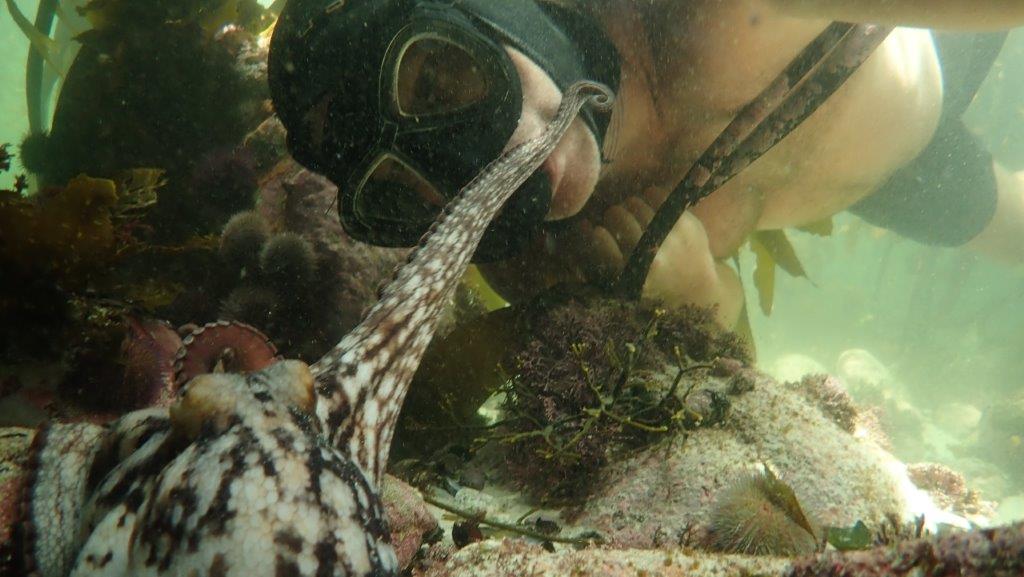

She survives but loses an arm in the process. This is especially difficult when the octopus is dramatically chased by a shark. Over the course of a year of daily diving, though he feels protective, he refrains from interfering in her and the other animals' lives. Eventually she sits on his chests and lets him pet her. She seems to accept him as a benign seafarer and crawls up his hand cautiously. In his daily dives, Foster's patience and doggedness with the octopus is rewarded. The eight-armed, liquid creature is a plucky and resourceful predator, a master of disguise, and supremely self-reliant. In this unbalanced state, he starts diving alone in the chilly waters of the kelp forest to relax and escape, and soon spots the title's MY OCTOPUS TEACHER. There’s a lot you can learn from this octopus like Foster did (a number of life lessons, none of which feel like stretches either), but there’s even more that the camera picks up of this mysterious setting they say a picture is worth a thousand words, and the underwater documentation in My Octopus Teacher is worth ten million (even if Foster has the honour of telling us a few of them).Documentary-maker Craig Foster doesn't list the troubles that drove him from his beloved filmmaking to recharge on the South African coast of his childhood, but he describes himself as unfit to be near his son during this period. I’m fine with having seen the film once, but I’m glad that I did, given the otherworldliness of life under the sea.

I don’t blame Foster for saying as much as he did, because I’d probably spend five hours talking about my adventures with a sea creature if I had one for a friend (wouldn’t you?). If I were to revisit the film, it would be to enjoy the endless scenery and mind blowing octopus activities (I’ll never get over how well octopuses can camouflage, and yes, octopuses is correct), even though all of the narration is a nice aside. Still, the experience of My Octopus Teacher, and what Foster goes through and learns with his friendship with this tiny octopus, are still marvellous tales to tell, and the film gets by despite the overly cautious nature of the film’s storytelling.

For the most part, however, Foster is no Herzog (who can just spew whatever the hell he wants and still say profound things almost every time in his films), as his narrations are oftentimes exactly what you’re seeing on screen there’s a little too much handholding in My Octopus Teacher to ever feel like you’re able to explore yourself entirely, as you’re being instructed on what to feel and why. Some of these moments make for fascinating stories, like when the octopus was attacked by a shark and had to regrow its missing tentacle. Then you have the voice over by Craig Foster, who the film is based on, as he goes over his personal recounts of his experience with the eight limbed mollusc detail by detail.

On one hand, it’s an exploration of False Bay near Cape Town, with stunning cinematography of the ocean life there (ranging from the titular common octopus, to jellyfish frozen in time, sharks stalking their pray, and kelp going wherever the current takes it) it’s a must-see film for these elements alone. My Octopus Teacher has the weird ability to feel like both kinds of documentaries. For every by-the-numbers interview session, you have a Werner Herzog who finds new meanings of life in the wild, and comes to these realizations in ways that none of his fictional works could ever grant him. Documentaries can be finicky, because they are both the most limited and limitless kinds of filmmaking out there.


 0 kommentar(er)
0 kommentar(er)
